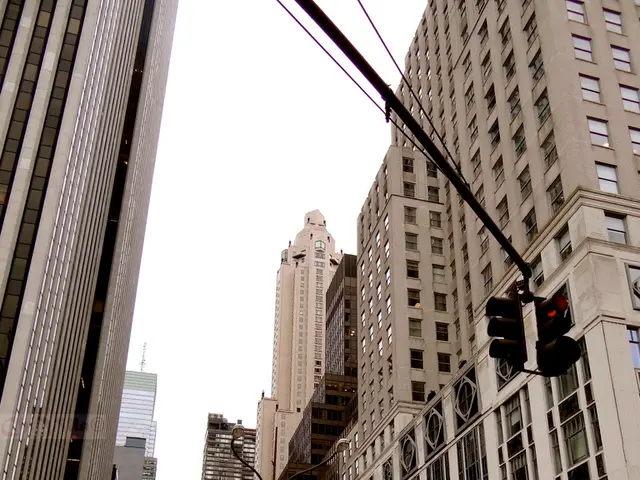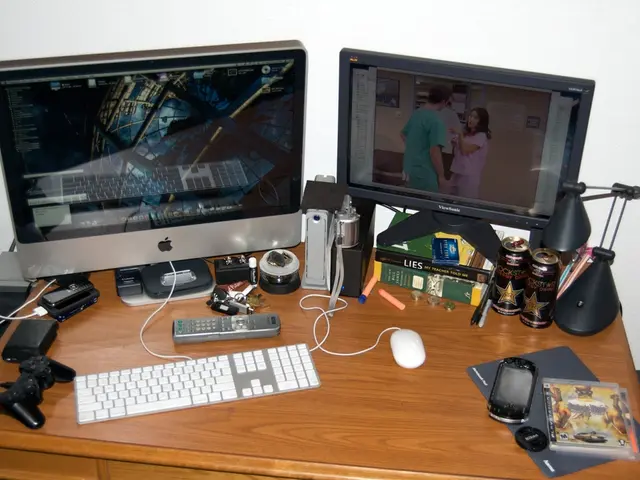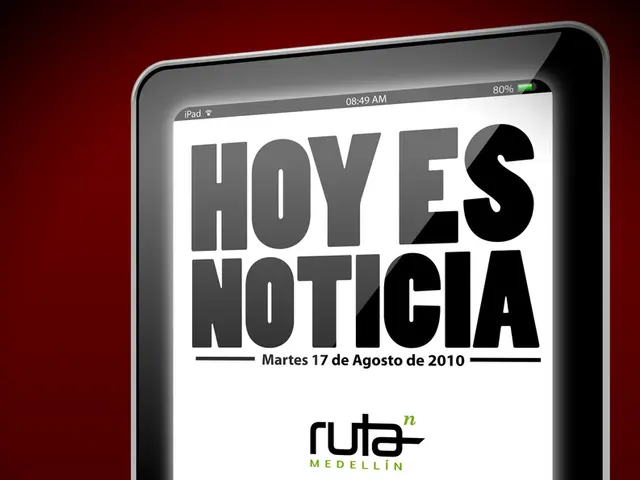Artificial Intelligence and Copyright Laws: Is It Possible for AI to Be Credited as a Creator?
In the rapidly evolving world of technology, Artificial Intelligence (AI) has emerged as a creator, with generative AI leading the charge. However, determining the rightful owner and establishing the creative lineage of AI-generated content introduces a paradigm shift, as works generated solely by AI are generally not considered copyrightable under the current U.S. legal framework, which requires human authorship for copyright protection [1].
This complex issue is further compounded by the use of AI in training on copyrighted works. Ongoing litigation, such as the cases of Kadrey v. Meta and Bartz v. Anthropic, has tentatively favoured AI developers, treating training as potentially transformative and thus falling under fair use [2][3]. However, these rulings are narrow, fact-specific, and not yet definitive, as many related cases remain unresolved in the courts [2][3].
Rights holders argue that using their works for AI training without licensing infringes their rights and harms the creative industries [1][2]. The complexity is heightened by difficulties in obtaining licenses from numerous individual authors whose works train AI models.
The White House, in its AI Action Plan, emphasized innovation acceleration and AI infrastructure but did not directly overhaul copyright law. The Plan called for a "common-sense application" of intellectual property rules but left open the possibility of future legislative or regulatory changes [4]. Meanwhile, some political figures have expressed skepticism about strict copyright adherence in AI development, viewing copyright as a potential obstacle to rapid AI progress [5].
In summary, AI as a creator lacks formal recognition as a rights holder, and AI-generated works lack autonomous copyright ownership [2]. The use of AI in training may be considered under the fair use doctrine, with the four statutory factors determining its legality [6]. The ownership of AI-generated copyright is a complex issue that requires examination of the process of creation and authorship.
The traditional prerequisites of human-centric creativity face a conundrum in accommodating the machine's autonomous creative processes. The court case Thaler v. Perlmutter affirmed the denial of copyright registration for an AI-generated artwork, reinforcing the human-centric nature of copyright law [7].
Establishing access and substantial similarity are key factors in determining copyright infringement by AI. The legal framework, built upon the idea of human authorship, encounters challenges when confronted with the emergence of AI-generated content. Legal instruments like contracts and terms of service are crucial in defining copyright ownership in AI-generated works [8].
As we move forward, ongoing discussions within legal and tech communities are essential to stay attuned to the transformative convergence between artificial intelligence and intellectual property. The future may hold legislative action to recalibrate laws to handle the challenges posed by AI in the realm of intellectual property [9]. For now, fair use remains a central but unsettled defense for AI platforms using copyrighted content in training.
References:
- AI and Copyright: Issues and Challenges
- AI and Copyright Law
- Fair Use and AI
- White House AI Action Plan
- Copyright and AI: A Policy Agenda
- Fair Use and the Future of Creativity
- Thaler v. Perlmutter: AI-Generated Art and Copyright Law
- AI and the Law: An Introduction
- AI and Intellectual Property: A New Frontier
- The legal framework struggle to accommodate AI-generated works due to their lack of autonomous copyright ownership, as illustrated in the Thaler v. Perlmutter case.
- The use of AI in training on copyrighted works raises concerns about infringement of rights holders, making it a complex issue that requires examination of the process of creation and authorship.
- Courts have tentatively favored AI developers in ongoing litigation, treating AI training as potentially transformative and falling under fair use, but these rulings are narrow and not yet definitive.
- The future may hold legislative action to recalibrate laws to handle the challenges posed by AI in the realm of intellectual property, as ongoing discussions within legal and tech communities are essential to stay attuned to the transformative convergence between artificial intelligence and intellectual property.




